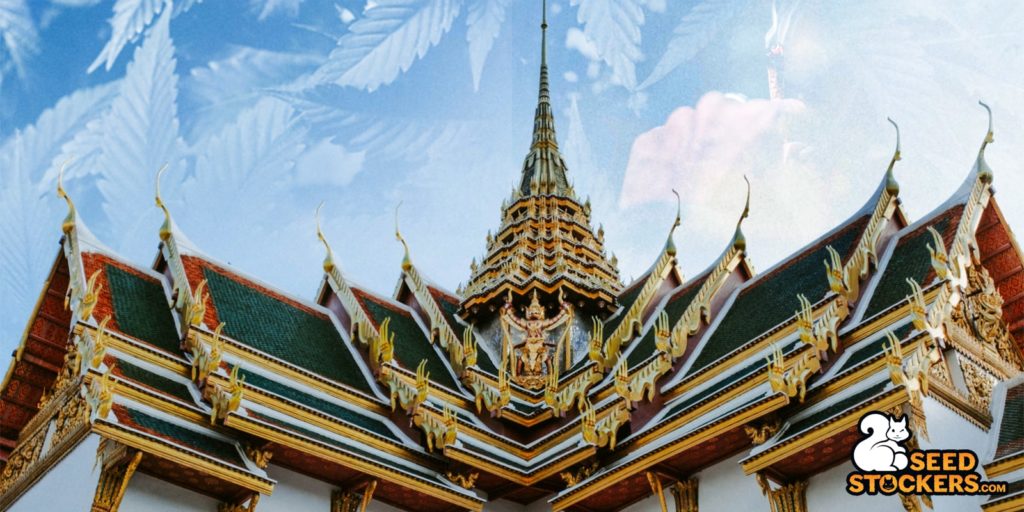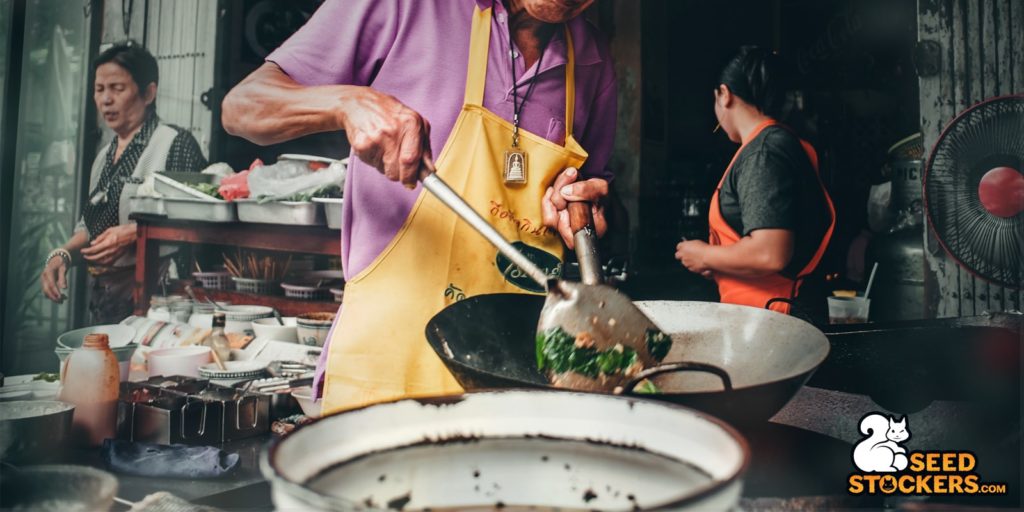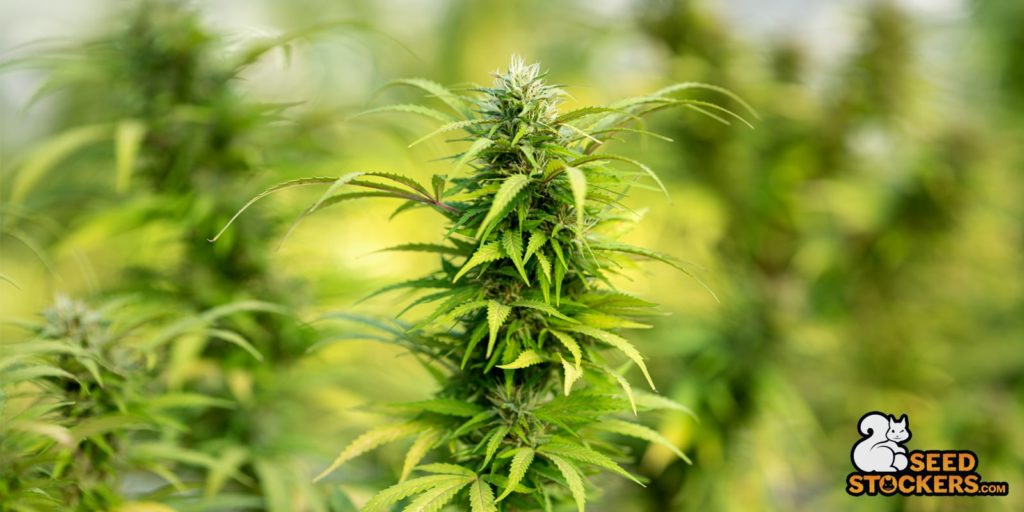

Thailand is taking the lead in Southeast Asia and will add four cannabis strains into their National Heritage list by the end of August. Southeast Asia has been historically harsh about drug use and trafficking. Countries like Thailand itself, Vietnam, Malaysia, Indonesia, Singapore or The Philippines have all included punishments such as decades in prison or the death penalty for drug offenses.

So how did it come to this? Let’s dive into this progressive announcement.
➡️ See also: Is London decriminalizing cannabis?
Thailand has an undeniable tradition of using cannabis to relieve pain and fatigue. Cannabis has been used over the centuries as a traditional medicine, in recipes and in topical ointments. One Sativa strain is known worldwide: Thai. This strain is commonly known as “Thai Stick” because of the traditionally wrapped buds from Thailand under the same name.
However, the four strains that are to get into the Thai National Heritage are:
The Medicinal Plant Research Institute, part of the National Department of Medical Sciences, has grown them in greenhouses.
There are two main goals to be reached. The first one is to create an economic opportunity for farmers and tourism like in Morocco.
The second goal is to encourage medical research. The Public Health Minister, Anutin Charnvirakul, wants to promote the study of these four strains for the development of a treatment for lung damage caused by COVID-19. The Department of Medical Sciences discovered that the cannabis roots have healing properties that could help restore lung function.

After centuries of a traditional medical use of cannabis, in 1979 the Narcotics Act was enacted forbidding the use of cannabis and listing both marijuana and hemp as prohibited substances.
In 2017 hemp was decriminalized in a pilot project by the National Narcotics Board.
In 2018 the National Assembly legalized the production, import, export, possession and use of medical cannabis.
In 2019 cannabis and hemp extracts were removed completely from the Narcotics Act.
In 2020 nearly all parts of the cannabis plant were removed from criminal statutes. Exceptions are, for example, marijuana seeds.
In 2021 the Public Health Minister Anutin Charnvirakul announced that households could grow up to six cannabis plants to help increase their income. This measure promotes non-psychoactive cannabis (rates of less than 0,2% THC and high on CBD) and cannabis production for medical purposes.
Since 2018, traditional and modern health practitioners are allowed to prescribe medical cannabis in Thailand. There are already four types of drugs containing THC and CBD to treat migraine, insomnia, neck pain and muscle stiffness. Cannabis is making its way back to the ancient tradition of using the plant to treat several health symptoms and conditions.

Cannabis has been used over the centuries as a traditional medicine, in recipes and in topical ointments.
Thailand is going through a “green gold rush”, a new growing cannabis fever. Cannabis can be found not only in hospitals and clinics but also in cosmetics and foods. However, there is still a long way to go before recreational cannabis use is accepted and widespread. The reason for this is the psychoactive effects of the plant, which are still not fully legalized. THC levels are closely monitored and kept under 0,2%. Monetization of the therapeutic benefits of the plant is a priority as of 2021. Smoking weed in Thailand is a bad idea!

This strain is commonly known as “Thai Stick” because of the traditionally wrapped buds from Thailand under the same name.
The decision to include these four strains within the National Heritage of Thailand will hopefully improve the country’s economic competitiveness. According to the former Commerce Minister, Sontirat Sontrijirawonghas, “Marijuana is Thailand’s future cash crop”. And indeed, Thailand’s legal cannabis market could bring up to 661$ million by 2024 according to the Asia Cannabis Report.
Additionally, decriminalization and legalization are boosting research and development of medical marijuana. This could inspire other southeast Asian countries to soften their politics towards cannabis. Take the example of Malaysian prisons which are overcrowded with up to 55% of prisoners convicted only for drug use.
Be it a political decision to gain popularity or a new national business model, more research into medical cannabis seems like a step forward during the COVID-19 pandemic.